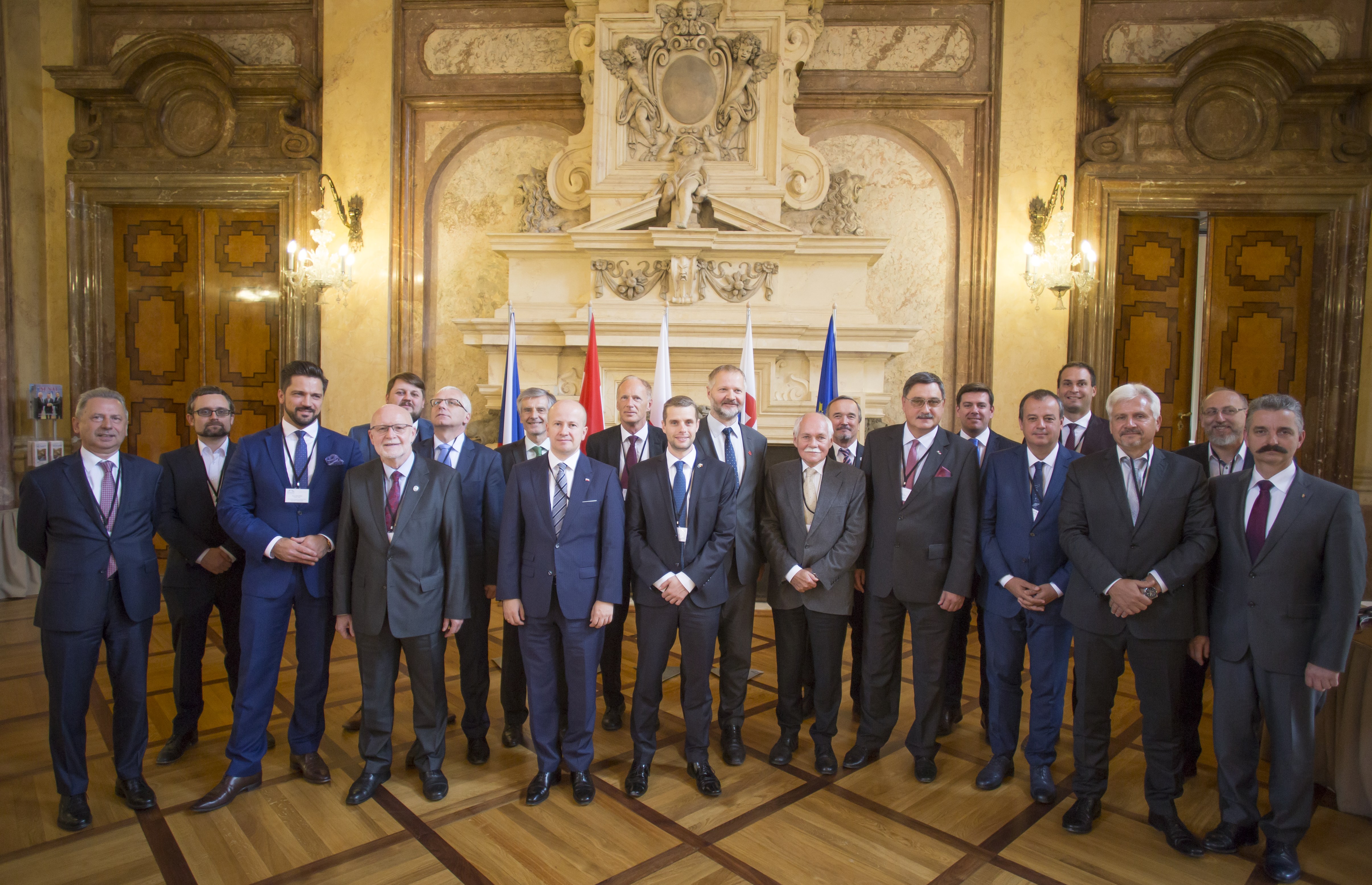The European Affairs Committees of the parliaments of the Visegrad Countries held a meeting in Prague on 7–9 October 2018 at the invitation of Václav Hampl, Chairman of the Committee on EU Affairs of the Senate of the Czech Republic. The Committee on European Affairs of the Hungarian National Assembly was represented at the meeting by Chairman dr. Richárd Hörcsik and Vice-Chairman Zoltán Tessely. Following the practice — which has already become a tradition —, the European affairs committees of the V4 parliaments meet every six months, thus the parliament chamber hosting the event may be different from the parliament of the country holding the one-year V4 presidency.
The agenda of the meeting included the Energy Union and climate policy, as well as the report of the Task Force on Subsidiarity, Proportionality and “Doing Less More Efficiently”, established in late 2017 and led by the First Vice-President of the European Commission Frans Timmermans, and published on 10 July 2018.
With regard to the Energy Union and climate policy, Richárd Hörcsik reported that, the week before the meeting, the Hungarian National Assembly had held its debate on the second National Climate Change Strategy 2030 (also offering a prospective for the period up to 2050), which also reflected the objectives of the Paris Agreement. He emphasized that, for the purpose of mitigating climate change, Hungary took part in all the international and EU-level climate protection processes and fulfilled its obligations aimed at reducing greenhouse gas emissions and increasing CO2 sinks. He underlined that Hungary regarded the solar panel capacity increase as a priority, yet we could not do without nuclear energy either, since both resources were needed to ensure that 90 per cent of the country’s electricity generation be CO2-free by 2030.
Concerning this agenda item, Vice-Chairman Zoltán Tessely underlined the importance of the Member States’ national energy and climate plans, and declared that Hungary was committed to achieving the relevant EU targets. He explained that, besides energy efficiency and renewable energy, Hungary considered maintaining the country’s nuclear capacity as a key measure to achieve the objectives related to decarbonisation. The Vice-Chairman mentioned that it would be appropriate to identify the regional projects related to the Energy Union that could obtain EU funding after 2020, and made it clear that Hungary intended to maintain the state price regulation in terms of electricity.
The participants of the debate expressed their views primarily on energy policy and the challenges faced by their countries. The Polish party addressed the need for joint action against the Nord Stream 2 gas pipeline (Piotr Apel, Vice-Chairman of the European Affairs Committee of the Sejm of Poland), the issue of coal power plants based on new technologies and the legislative difficulties concerning the construction of wind turbines (Piotr Wach, Senator), while the Czech and Slovak parties referred to the need for nuclear power plants (Jan Skopeček, Czech MP, Martin Klus, Vice-Chairman of the European Affairs Committee of the National Council of the Slovak Republic).
Regarding the report of the task force on subsidiarity, Richárd Hörcsik expressed his view that the task force had been set up with at least 5 years’ delay, and the results achieved by it fell short of the expectations. He said that the Committee on European Affairs of the National Assembly of Hungary and the relevant government representative had discussed and evaluated the report of the task force in early October 2018. Although the Hungarian government did send written contributions to the task force, sadly, the document hardly contained any of the recommendations of the Member States.
The Chairman of the Hungarian committee underlined that the position of Hungary in terms of increasing the role of national parliaments in European affairs supported the introduction of the red card procedure, the extension of the 8-week deadline to 12 weeks, as well as taking into account the principle of proportionality when drafting reasoned opinions. Hungary does not accept the stealthy extension of the competences of the Union in any of the EU policies. We welcome the proposal of extending the 8-week deadline, included in the report, yet we regret that it had not defined any specific area that once again could fall under the competence of Member States, and we also regret that the plan of the so-called red card procedure has not been included, he said.
The rest of the speakers welcomed certain recommendations of the task force: a more flexible application by the European Commission of the 8-week deadline for issuing reasoned opinions and the extension of the current deadline to 12 weeks, upon a change of the Treaties.
At the end of the meeting, the participants unanimously adopted the final conclusions.
During the meeting, Chairman Richárd Hörcsik thanked the Czech MPs for the (short) resolution adopted by the Chamber of Deputies of the Czech Parliament on 2 October 2018, in which they had condemned the European Parliament for the so-called Sargentini report adopted in September.





